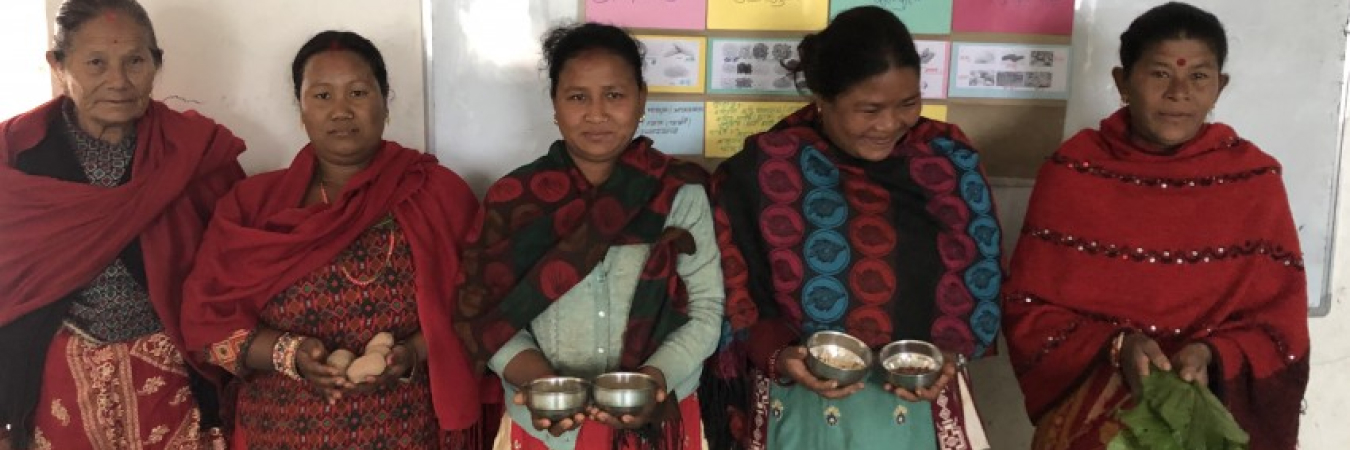
Beneficiaries
To help the poorest of the poor and sustain biodiversity conservation, ANSAB supports a wide variety of public and private actors at the local, regional and national level. More specifically, ANSAB:
- Improves the livelihood of poor, women and other disadvantaged people by involving them in micro and small enterprises. It does so through the formation of subgroups in charge of specific income generating tasks such as keeping bees, farming vegetables and animals, sawing timber, retailing groceries and supplying raw materials to processing enterprises.
- Increases value addition at the local level by helping community-based, processing enterprises located in rural Nepal to undertake activities such as hand making paper, distilling essential oils, assembling bio-briquettes, making furniture, weaving allo cloth, extracting dhatelo oil and marketing community products regionally.
- Promotes the export of community products to major cities and international markets by pooling the production of different community enterprises and providing support to national marketing companies, such as Himalayan BioTrade Private Ltd. (essential oils, handmade paper, dried herbs), Himalayan Green Energy Private Ltd. (bio-briquettes), Gorkha Ayurved Company (ayurvedic medicines, food supplements), and Alternative Herbal Industries (herbal teas, juices, personal care products).
- Works with Community Forest User Groups, that is communities residing in forest vicinities that have been entrusted by the Nepali government to manage, conserve, develop and utilize local forest resources. ANSAB helps them carry out their responsibilities in a productive, sustainable and equitable manner, notably in the preparation of their constitution (or CFUG Charter) and forest management operational plan. Similar forest user groups exist in other South Asian jurisdictions and ANSAB is thus often asked to disseminate its knowledge and provide advices outside Nepal as well.
- Shares its on-the-ground expertise with Community-Based Organizations (CBOs), local and national governments, development agencies, international NGOs and university academics to improve their own programs and researches and ensure that lessons learned benefit an ever greater number of people. ANSAB advisory roles can take the form of individual coaching, publications, participation in seminars and workshops, membership in consultative bodies or paid consultancy contracts.
